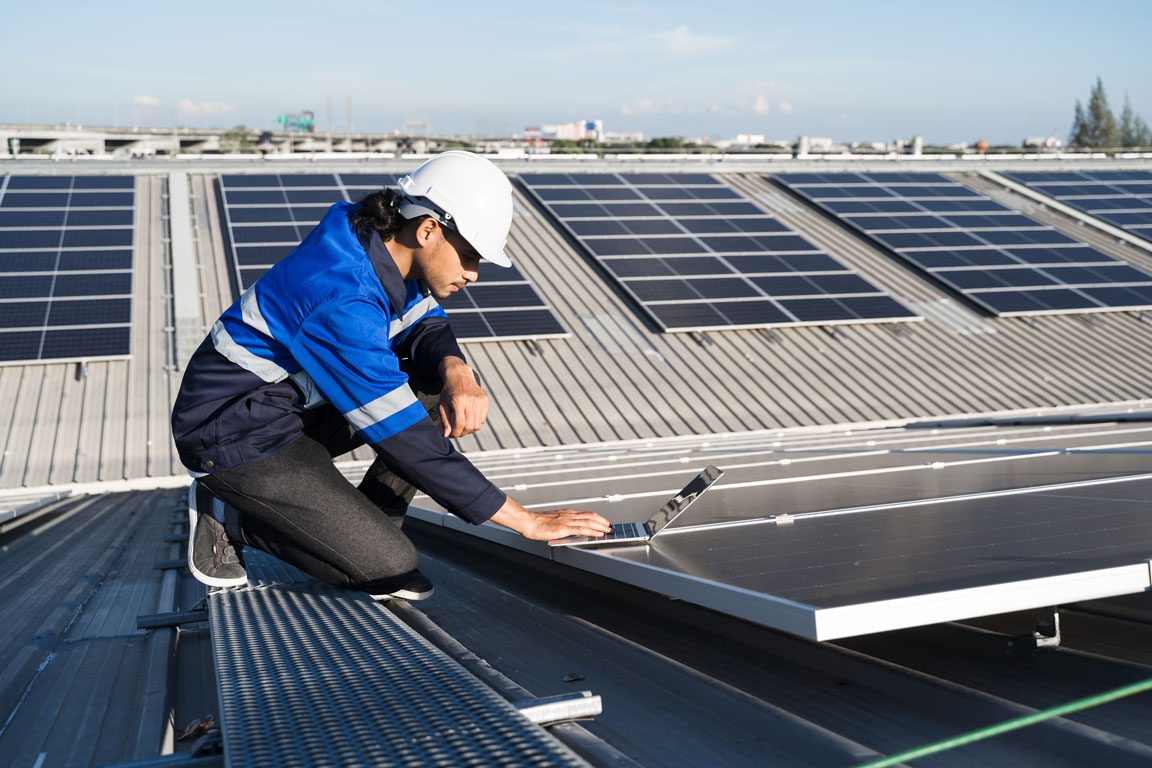Solar energy is one of the most eco-friendly and reliable ways to power your home’s electricity needs. But how do solar panels actually work? This article provides interesting information on solar panel functionality along with some benefits of powering your home with solar.
How Do Panels Turn Solar Energy Into Electricity?
Solar panels convert the infinite energy from the sun into electricity—even on cloudy days. Unlike power generated by fossil fuels, solar energy does not create noise, air, or water pollution. Solar panels, which are made up of photovoltaic (PV) cells, convert sunlight into direct current (DC) electricity throughout the day. Since most homes in the United States run on alternating current (AC) electricity, the DC electricity generated by solar panels is then converted into AC electricity through inverters. You can use the converted electricity to power your home. Any excess energy you produce will be contributed back to the grid and can become a credit on your next energy bill.
How do the PV cells work?
PV cells allow particles of light, which are called photons, to knock electrons free from atoms. This process generates electricity, a form of power you can use just about anywhere.
Will My House Still Be Connected to the Grid?
When you go solar, you will still be connected to the grid. This allows you to draw from the grid when your system is not producing all the electricity you may need. This also allows you to be compensated for providing power to the grid when you are producing more electricity than you need.



Benefits of Solar Energy
What Are the Financial Benefits of Solar Energy?
By reducing the electricity you get from the grid, solar lowers your bill. How much you can save depends on the electric rates in your area. There may also be significant federal, State, and local tax credits for installing solar at your home.
What Are the Environmental and Health Benefits of Solar Energy?
Solar is one of the cleanest forms of renewable energy. By switching to solar, you reduce your carbon footprint and help New York fight climate change. Solar also reduces the presence of harmful air pollutants like sulfur dioxide, which may cause serious health problems. Ultimately, by going solar, you are contributing to a cleaner and healthier community.
How Will I Be Compensated for My Solar Energy?
With solar, your home can go from being an energy consumer to being an energy producer. Electric utilities will credit your bill for the power your home produces using solar panels. You’ll only pay for electricity if you use more than what your solar panels generate during that billing cycle.

